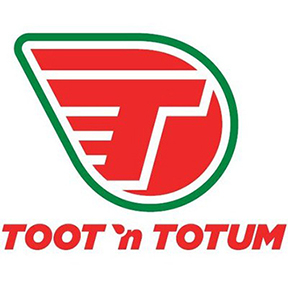Toot’n Totum Food Stores and Pak-A-Sak are optimizing labor costs with PDI’s second generation labor scheduling software.
 Toot’n Totum Food Stores and Pak-A-Sak have now officially completed their rollout of PDI/Labor Scheduler 2.0.
Toot’n Totum Food Stores and Pak-A-Sak have now officially completed their rollout of PDI/Labor Scheduler 2.0.
This second generation labor scheduling software uses market basket transaction data to predict customer traffic and recommend appropriate staffing levels. The result is more efficient staffing by scheduling managers without sacrificing customer service at the store.
Pak-A-Sak has already seen as much as a 13% reduction in overtime since it began using the software. “It’s incredibly important to have the right number of people for the right amount of business,” said Gary McKee, chief information officer for Pak-A-Sak. “With hourly market basket data integrated directly into PDI/Labor Scheduler, we can formulate a more precise schedule to maximize profits.”
![Pak-A-Sak [444147]](https://cstoredecisions.com/wp-content/uploads/2016/08/Pak-A-Sak-444147.jpg) Rodger Hudson, chief financial officer for Toot’n Totum, said while his company has experience with transaction-based labor scheduling software, the use of near real-time market basket data will be incredibly valuable. “PDI/Labor Scheduler 2.0 enables us to make labor schedules based on current hourly information rather than historical hourly information that may no longer be valid. That’s hugely beneficial to our customers by ensuring proper staffing levels and to us from a financial perspective.”
Rodger Hudson, chief financial officer for Toot’n Totum, said while his company has experience with transaction-based labor scheduling software, the use of near real-time market basket data will be incredibly valuable. “PDI/Labor Scheduler 2.0 enables us to make labor schedules based on current hourly information rather than historical hourly information that may no longer be valid. That’s hugely beneficial to our customers by ensuring proper staffing levels and to us from a financial perspective.”
PDI/Labor Scheduler 2.0 also provides suggested staffing levels based on site-level labor budgets, allowing managers to allocate budgeted hours by site, role and effective date. “PDI/Labor Scheduler’s rules-driven approach automatically adapts to each site’s traffic patterns, making it much easier to create schedules that optimize labor budgets while still complying with minimum staffing requirements and keeping supervisors aware of any exceptions,” said Jim Wade, vice president of product development for PDI.
PDI/Labor Scheduler 2.0 went to general release late last month.




